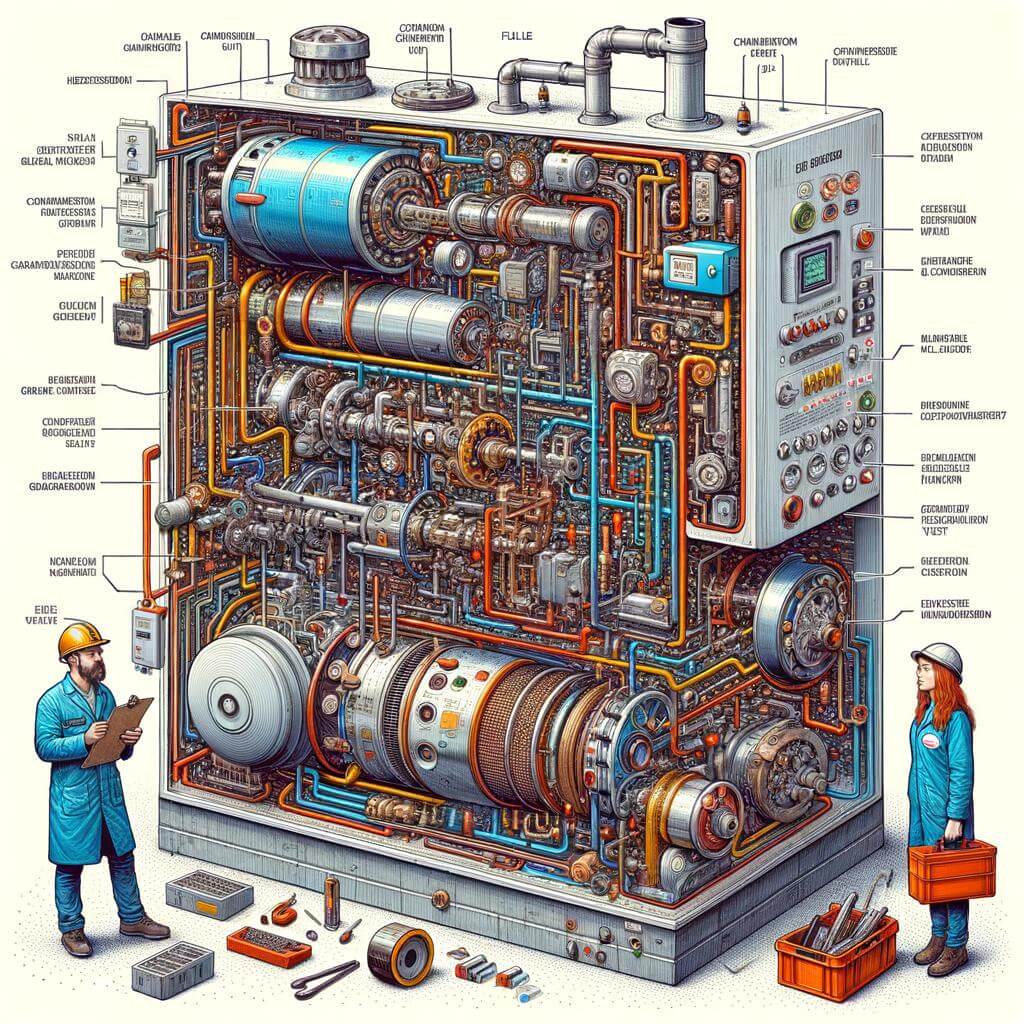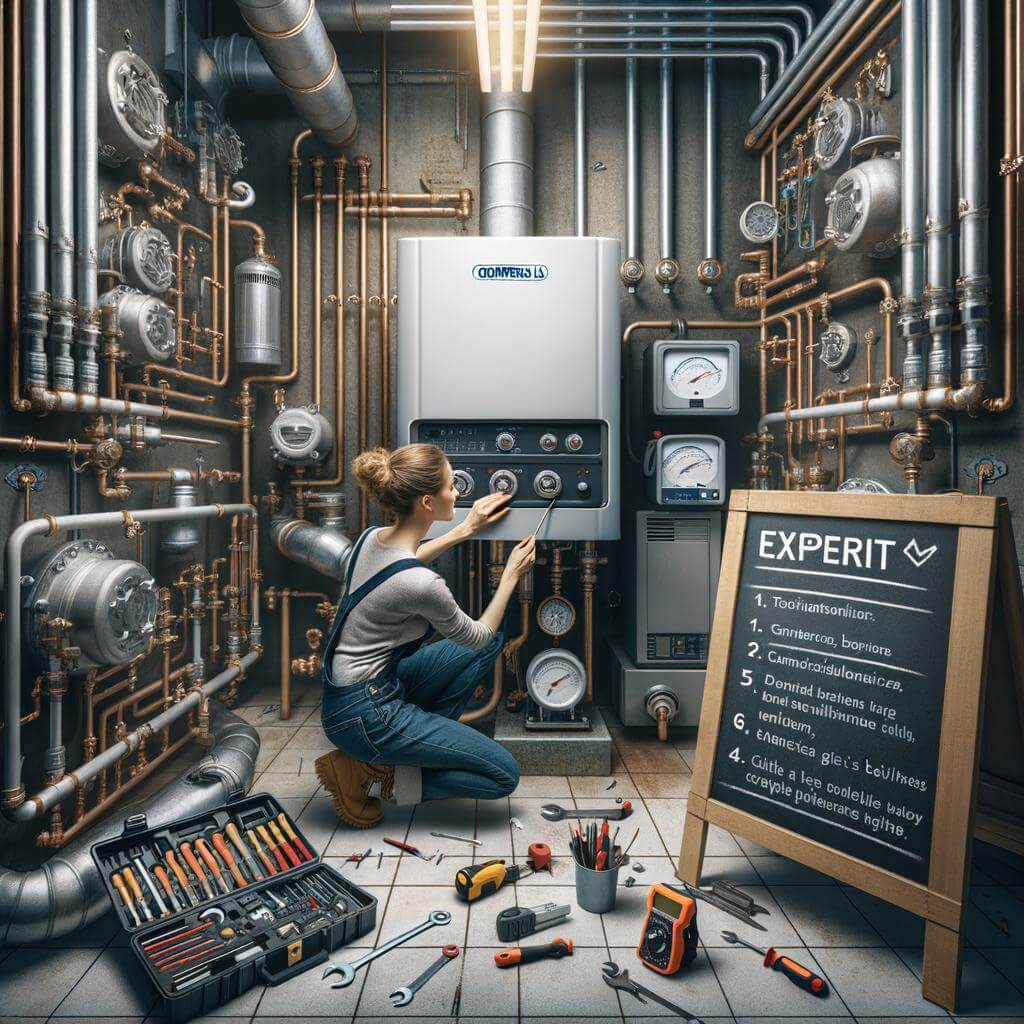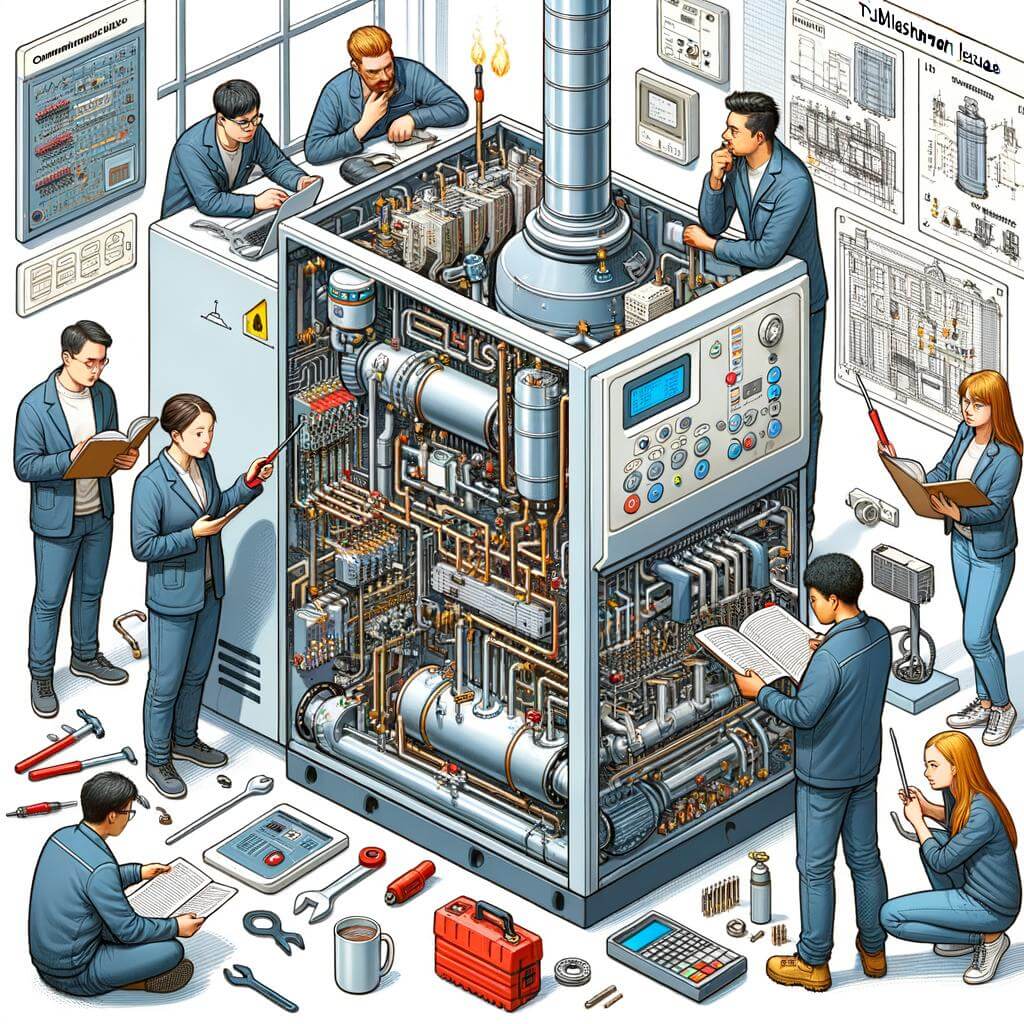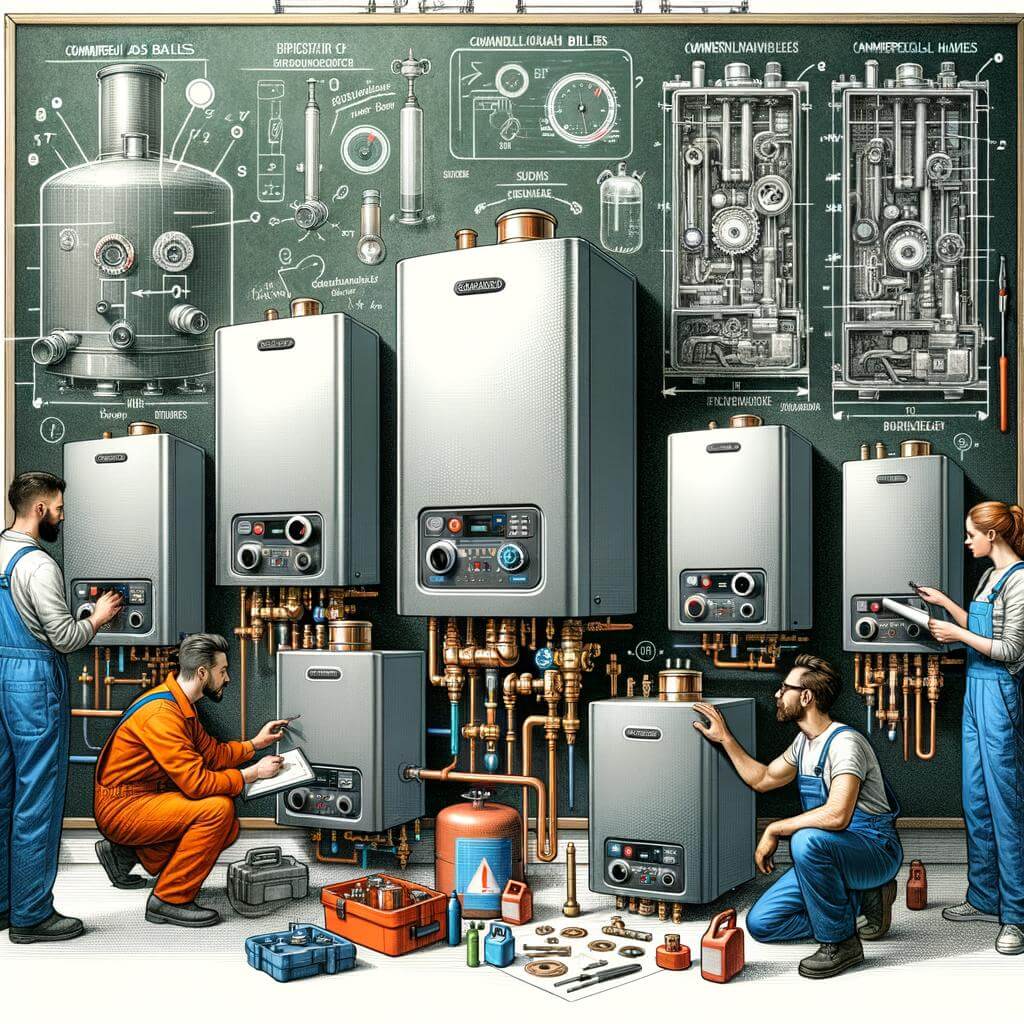Welcome to “Expert Plumber’s Guide: How Commercial Gas Boilers Work in Restaurants”. This detailed post is dedicated to providing you with informative, useful and straightforward insights into the functions of commercial gas boilers, particularly in the restaurant sector. Written by an industry expert, it aims to educate you about the integral role these boilers play in the smooth operations of your beloved eateries. The knowledge gained from this post can potentially help you solve minor issues, enhance energy efficiency and prevent potential mishaps. It’s an excellent resource for restaurant owners, managers, or anyone interested in understanding the plumbing industry better. Let’s dive in!
Understanding the Role of Commercial Gas Boilers in Restaurants
In the bustling world of culinary business, one cannot deny the critical role that commercial gas boilers play. Used for a multitude of purposes, these boilers are an integral part of a restaurant’s smooth functioning. Let’s explore further. A commercial gas boiler primarily serves two functions – providing heat and hot water. The central heating system ensures a warm and comfortable ambiance for customers, particularly in colder months, enhancing their dining experience. On the other hand, a continuous supply of hot water is crucial for hygiene and cleaning purposes – from washing dishes and cutlery to cleaning the kitchen space itself.
Why Choose Commercial Gas Boilers?
Unbeatable for their efficiency and cost-effectiveness, commercial gas boilers offer several advantages:
- Reliability: They deliver consistent heat and hot water, reducing the chances of unexpected breakdowns that could disrupt restaurant operations.
- Energy Efficiency: Gas boilers offer superior energy efficiency, translating to lower operational costs and carbon footprint.
- Space Optimization: Modern gas boilers come in compact sizes, saving valuable kitchen space while delivering optimum performance.
Let’s now delve into how these boilers are customized for restaurant usage. Customization of Commercial Gas Boilers
| Model | Customization Feature |
| High-efficiency models | Fitted with energy saving features like condensing technology, which captures and uses the heat from exhaust gases. |
| Compact size models | Designed to fit into small spaces or integrated into cabinetry for seamless kitchen integration. |
In essence, commercial gas boilers are the backbone of a restaurant’s operation, contributing to a warm atmosphere, efficient kitchen operations, and substantial energy and cost savings. As such, it’s imperative that restaurant owners invest in high-quality, reliable commercial gas boilers and maintain them appropriately to ensure their longevity and consistent performance.
Diving Deep into the Mechanics of Commercial Gas Boilers
Commercial gas boilers are instrumental in the smooth operation of restaurants and other food establishments. Understanding its mechanics can help restaurant owners save energy, keep equipment running optimally, and avoid unexpected breakdowns. Let’s explore the intricacies of a commercial gas boiler system.
To start, commercial gas boilers heat water by burning natural gas. Most models contain a heat exchanger, which is critical to the heating process. As the gas burns within the boiler, it heats the exchanger which, in turn, warms up the water. The hot water or steam travels through pipes to radiators or convectors, which distribute the heat to the rooms. The water is then returned to the boiler for reheating.
- Combustion Chamber: This is where the heating begins. Air and gas are mixed together in this section and ignited by the burner assembly creating heat.
- Heat Exchanger: This component absorbs the heat from the combustion gases, transferring it to the water circulating in the boiler.
- Pump: The pump pushes hot water from the boiler through the heating system.
Commercial gas boilers also incorporate a series of safety mechanisms to mitigate the risks associated with gas appliances. This includes flue gas spill detectors that trigger an emergency shutdown if exhaust gases spill out, and pressure relief valves to regulate pressure within the system.
| Component | Function |
|---|---|
| Thermostat | Regulates the temperature of the boiler and heating system |
| Pressure Gauge | Monitors the pressure level within the boiler |
| Flue Pipe | Expels waste gases produced during combustion |
Overall, understanding the working mechanisms of commercial gas boilers can help restaurant owners and managers take proactive steps for efficient operation and preventative maintenance. Remember, when it comes to gas boilers, safety should always be the top priority. Hence, all installations, repairs, and inspections should be undertaken by a registered gas technician.

Maintenance and Efficiency: Expert Tips for Taking Care of your Commercial Gas Boiler
Maintaining and improving the efficiency of your commercial gas boiler is vital for running your restaurant smoothly. From ensuring commercial kitchen safety to saving on energy costs, a well-maintained boiler plays a pivotal role. As a restaurant owner or manager, understanding the workings of a commercial gas boiler can help you avoid unnecessary expenses and ensure top-notch performance.
Regular Inspection and Cleaning:
One of the key steps to maintaining a commercial gas boiler is regular inspection and cleaning. Experts suggest at least yearly inspection by professional boiler technicians. An inspection can reveal any potential issues that could lead to a bigger problem. Cleaning, on the other hand, ensures optimal performance by removing any dirt and debris. The cleaning and inspection checklist should include:
- Check controls and gauges for proper operation
- Inspect seals and gaskets for leakage
- Examine heat exchanger for signs of corrosion
| Parts to Inspect | Actions to Take |
|---|---|
| Controls and gauges | Check for proper operation |
| Seals and Gaskets | Inspect for leakage |
| Heat exchanger | Examine for signs of corrosion |
The efficiency of a commercial gas boiler lies in its maintenance. Remember to check and adjust the boiler’s water levels regularly, as too much or too little water could reduce the efficiency of the appliance. Limescale buildups are another potential problem that could reduce the boiler’s efficiency; installing a water softener system can avoid this issue.
Efficiency Tips:
There are several ways to increase the efficiency of your commercial gas boiler:
- Keep your boiler and its surroundings clutter-free. A tidy area allows for better air circulation and optimal boiler performance
- Insulate your boiler and pipes to reduce heat loss
- Consider using a condensing boiler, they can recover latent heat from exhaust gases
| Efficiency Tips | Required Actions |
|---|---|
| Clutter-free vicinity | Ensure better aeration and peak boiler performance |
| Insulate boiler & pipes | Reduce heat losses |
| Condensing boiler | Recover latent heat from exhaust gases |
Ultimately, regular maintenance, following a cleaning schedule, and staying proactive will extend the life of your commercial gas boiler while maximizing its efficiency.
Ensuring Safety in Using Commercial Gas Boilers in Restaurants
As you may know, commercial gas boilers are widely used in restaurants for varied needs, from cooking food to cleaning utensils. However, due to their critical role and inherent hazards associated with them, it is essential to operate them safely. If not handled carefully, these boilers can lead to dire consequences, including costly repairs, interruption of daily operations, or even safety hazards. Therefore, here are some essential tips to ensure safe usage of commercial gas boilers:
- Regular Maintenance: Just like any other mechanical tool, boilers also require regular maintenance to operate efficiently and safely. This can prevent minor issues from escalating into major problems. Therefore, schedule maintenance checks with a qualified professional.
- Monitor Boiler Pressure: Keep an eye on the boiler pressure. If the pressure is too high or too low, the boiler might not work efficiently. Furthermore, abnormal pressure can lead to boiler failure or ruptures, causing significant damage.
- Ensure Proper Ventilation: Gas boilers produce harmful gases when operating. Therefore, it’s crucial to have adequate ventilation in the boiler room to ensure these gases escape safely. This prevents indoor air pollution and carbon monoxide risks.
- Educate Staff: Make sure that everyone working in the proximity of the boiler understands its operation and potential hazards. They should be aware of what to do in case of an emergency.
Moreover, regarding the type of boilers to use in a restaurant setting, different factors must be considered. These factors include the size of the restaurant, the intended usage, and the available budget. The following table breaks down the different types of commercial gas boilers and their pros and cons.
| Type of Boiler | Pros | Cons |
|---|---|---|
| Condensing Boilers | Highly efficient, Environment-friendly | Higher upfront cost |
| Non-condensing Boilers | Less expensive, Easier to install | Less efficient, More emissions |
| Combi Boilers | Compact size, instant hot water provision | Not suitable for large restaurants |

How to Troubleshoot Common Issues in Commercial Gas Boilers
When it comes to maintaining commercial gas boilers in restaurants, understanding the common issues and troubleshooting tactics is essential. Gas boilers play a pivotal role in restaurant operations, providing heat and hot water, an integral part of the daily kitchen functions. They operate by burning gas to heat water, which is then distributed throughout the building’s heating system or utilised in various kitchen tasks. Regular inspection and preventive maintenance go a long way; however, like any complex mechanical equipment, occasional problems are inevitable.
In diagnosing common issues, start by inspecting the boiler’s ignition process. These systems typically use a spark or hot surface igniter. If your boiler fails to ignite, it could be due to a faulty igniter, a gas supply issue, or an obstruction in the gas valve. Look also at the thermostat settings. If the boiler isn’t producing enough heat, the thermostat may be set too low, or it may be malfunctioning and require replacement. Boiler cycling — when the boiler repeatedly turns on and off in a short period — can be a sign of low water pressure, a faulty pump, or a thermostat issue.
| Possible Issues | Troubleshooting Steps |
|---|---|
| Boiler Fails to Ignite | Check the igniter, examine the gas supply and gas valve. |
| Insufficient Heat | Investigate the thermostat settings and functionality. |
| Boiler Cycling | Monitor water pressure, assess the pump and thermostat. |
Additionally, always pay attention to unusual noises or odd smells. These can be early indicators of technical issues such as pump failure, low water levels or a malfunction in the burner. Noticing these signs early and addressing them promptly can prevent potential downtime thus ensuring your restaurant continues its operation smoothly. Additionally, regular servicing of your commercial gas boiler by a trained technician is essential for maximizing performance and extending its life span.

Choosing the Right Commercial Gas Boiler: Recommendations from Expert Plumbers
When it comes to operating a restaurant, a reliable and efficient commercial gas boiler is a crucial part of ensuring everything runs smoothly. Not only can a high-quality commercial gas boiler help reduce energy costs, but it also ensures a consistent hot water supply and heat for cooking. With so many options on the market, selecting the right one for your establishment can be overwhelming, and that’s why our expert plumbers have some recommendations for you.
The first aspect you should always consider when choosing a commercial gas boiler is its efficiency. Boilers with a high efficiency rating can significantly reduce your energy consumption, thereby lowering your bill. Models like the Condensing Gas Boiler can achieve efficiency levels of up to 98%. You may also look into the Modulating Gas Boiler, which continually adjusts its burning output thus providing maximum efficiency during operations.
- Condensing Gas Boilers
- Conventional Gas Boilers
- Modulating Gas Boilers
Another crucial factor to consider is the boiler’s size. This is typically based on the number of rooms and total square footage your establishment has. You need to ensure your boiler is capable of handling the demands of your restaurant. An undersized boiler will result in insufficient heat or hot water, whereas an oversized one leads to wasteful energy consumption.
| Boiler Type | Ideal For |
|---|---|
| Condensing Gas Boiler | Large restaurants with high hot water and heating requirements |
| Conventional Gas Boiler | Small to medium-sized restaurants |
| Modulating Gas Boiler | Restaurants with variable and unpredictable heating demands |
Ultimately, the decision should align with your restaurant’s needs, consultation with a professional plumber can ensure you choose the right boiler that serves your establishment effectually. Remember, a good commercial gas boiler will not only ensure the comfort of your customers but it can also save you substantial amounts in energy bills over the long run.
In conclusion, understanding how commercial gas boilers work in restaurants goes beyond mere curiosity—it is a fundamental necessity, especially for those in the restaurant industry. Not only does it enlighten you on energy efficiency, but it also helps you address minor hitches before they erupt into costly problems. This guide, backed by expert insights and facts, has provided you with a comprehensive tour into the workings of commercial gas boilers in restaurants. Nevertheless, always remember to rely on expert assistance when dealing with these complex systems to avoid making costly or unsafe mistakes. Stay informed, be proactive, and enable your restaurant to perform at its peak running efficiency. We hope you found this guide beneficial, and may this newfound knowledge assist you well. Happy cooking and efficient heating!




